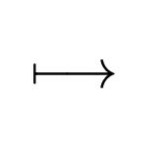https://xcancel.com/charliermarsh/status/1884651482009477368
We’re building a new static type checker for Python, from scratch, in Rust.
From a technical perspective, it’s probably our most ambitious project yet. We’re about 800 PRs deep!
Like Ruff and uv, there will be a significant focus on performance.
The entire system is designed to be highly incremental so that it can eventually power a language server (e.g., only re-analyze affected files on code change).
Performance is just one of many goals, though.
For example: we’re investing heavily in strong theoretical foundations and a consistent model of Python’s typing semantics.
(We’re lucky to have @carljm and @AlexWaygood on the team for many reasons, this is one of them.)
Another goal: minimizing false positives, especially on untyped code, to make it easier for projects to adopt a type checker and expand coverage gradually over time, without being swamped in bogus type errors from the start.
We haven’t publicized it to-date, but all of this work has been happening in the open, in the Ruff repository.
All driven by a uniquely great team: @carljm, @AlexWaygood, @sharkdp86, @MichaReiser, @DhruvManilawala, @ibraheemdev, @dcreager.
I’m learning so much from them.
Warning: this project is not ready for real-world user testing, and certainly not for production use (yet). The core architecture is there, but we’re still lacking support for some critical features.
Right now, I’d only recommend trying it out if you’re looking to contribute.
For now, we’re working towards an initial alpha release. When it’s ready, I’ll make sure you know :)
https://xkcd.com/927/ We have PEP for guidance so this doesn’t totally apply but…
Well, Astral as an history of managing to build tools that are actually very very clearly more usable than the pile of poop that Python ecosystem is 😅
Nice! This is very exciting. I don’t like the current landscape of python type checkers.
Please implement something like pyre-upgrade for being able to enable strict linting and upgrade existing code bases (but without all the other problems pyre brings). https://pyre-check.org/docs/types-in-python/#upgrade
Pyright is very good. The rest are worthless though.
I don’t like the current landscape of python type checkers.
I figure that Python itself is at the bottom of this. It simply wasn’t designed for static types. Mypy is still of some use but if you want a statically typed language, trying to graft a type system onto a unityped language hasn’t worked out well as far as I know. See also: the Erlang dialyzer, Typed Racket, and whatever that Clojure extension is called. Even Scala has its problems because the JVM has its own type system that isn’t that great a fit for Scala.
Also, why Rust as the implementation language? Just for speed? It seems a shame to not use Python/PyPy.
I mean, we’ll probably disagree on this, but in my not so humble opinion, Python is very unsuited for this large of a project, whereas Rust excels at large projects. I imagine, these folks might have a similar opinion, given that they’re building this tool in the first place. 🙃
But execution speed is also not something I’d ignore in a tool like that. I remember having to work with Pipenv and Poetry, and it was just cruel, having to wait more than a minute for it to tell you whether it can resolve dependencies for a fairly small project. And you’ll want to run a type checker a lot more often that that.
Good. Never been able to make mypy work as intended.
I don’t think a powerful type system can be added to python effectively. Even more convinced of this after reading “minimize false positives”.
Otoh, how strong of a type system is required for effective development? Probably what can be shoehorned into python tbh.
I never understood the need for a Python type checker. If I wanted static typing I would code in Fortran.




